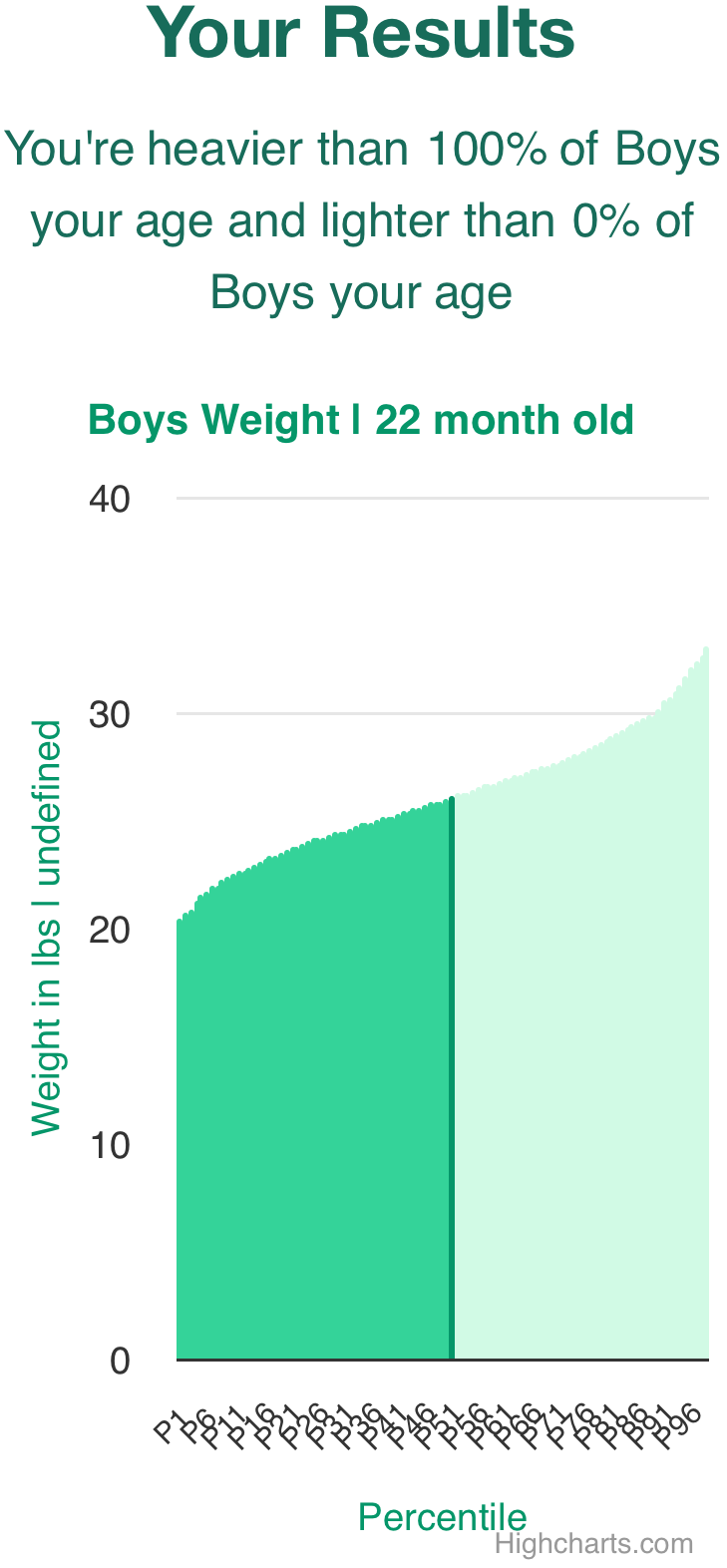Boys Weight chart in lbs for Toddlers 22 month old

General Summary: 22 month old boys weight
In most cases, weight measurements for 22 month old boys will be in the range between 21 and 32 lbs. The average weight for 22 month old boys is 26 lbs, according to the CDC and anonymized data from users.
All Results
Enter your weight measurements above to see how they compare
So far, we have recorded [0] weight measurements for 22-month-old boys on LifeMeasure!
(chart updates daily)
See more ages